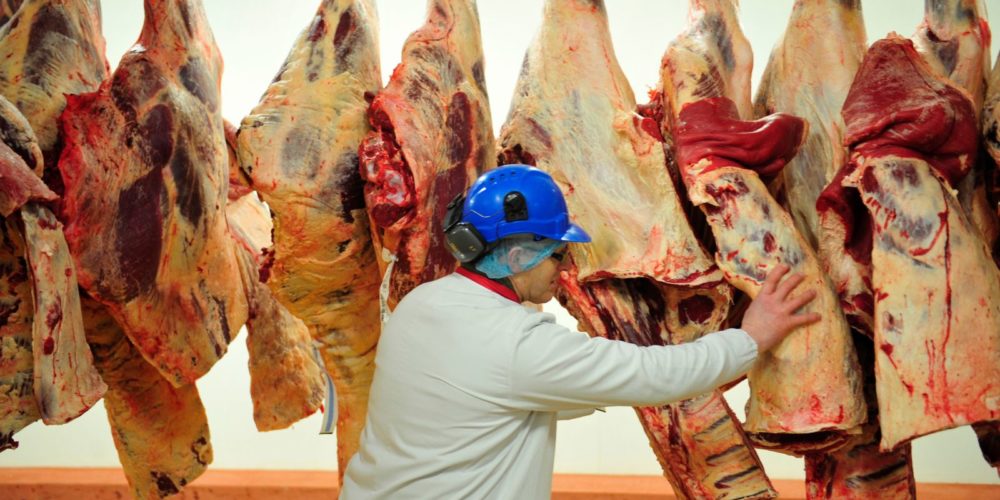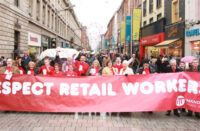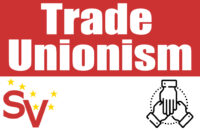Over the course of the covid-19 pandemic it has become increasingly clear that workers have borne the brunt of employers’ sharp practices. As they always do, employers, both large and small, have attempted to take maximum advantage of the public.
With workers unable to have recourse to the usual methods of dealing with employers and to defend themselves, the giant Debenham’s retail chain announced that it was closing down all eleven branches in Ireland, with the loss of nearly two thousand jobs. The workers only heard their fate from news reports. The company went into liquidation without having to negotiate with its employees about redundancy payments.
Many other retail workers complained that they were being forced to work in unsafe conditions, with little protection against the deadly virus. Mandate carried out a survey among retail workers, which found that—
- 23 per cent said that shopping trolleys or baskets are not regularly sanitised
- 29 per cent said they have insufficient protective equipment
- 46 per cent said that social distancing and crowd-control measures are not being adhered to.
Employers were quick to jack up prices but slow to provide proper protection or to pay additional money to employees.
In Liffey Meats in Ballyjamesduff, Co. Cavan, workers and their union have complained that the company is not complying with covid-19 precautions and are demanding that health inspectors be called in. The complaints relate to physical distancing, hand-washing and sanitising facilities as well as inadequate personal protection equipment in the factory.
How seriously does the trade union movement take workers’ health and safety in these dangerous times? The Health and Safety Committee of the ICTU has not hold one meeting since the outbreak.
When the restrictions are finally lifted, thousands of jobs will have gone, and workers will have no way of recovering what is owed to them. All the plaudits from the talking heads for courageous workers carrying out essential work will quickly disappear. Workers must “temper their aspirations”; their demands should be curtailed in the “national interest.”
The Government has borrowed billions, which they said they couldn’t do, but to save the system, not to build houses for workers or provide a decent health service. The money borrowed will be in the bosses’ bank accounts—and the bill will be in the post for workers to pay.






